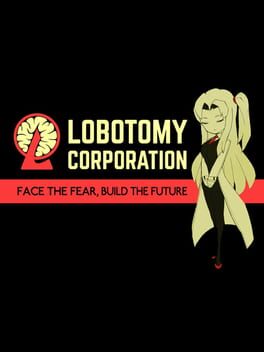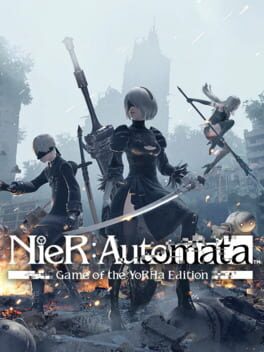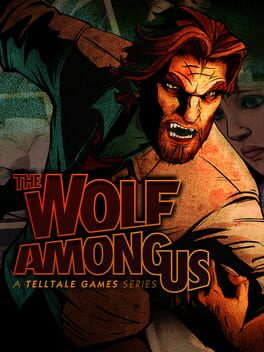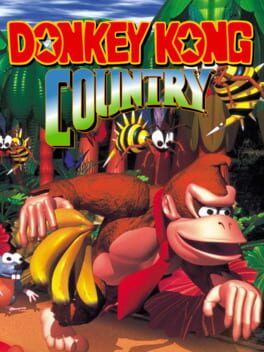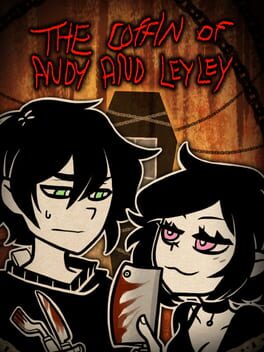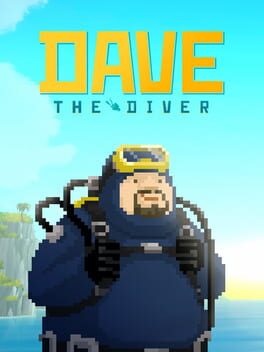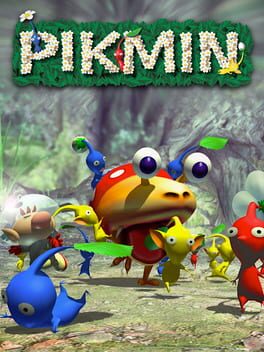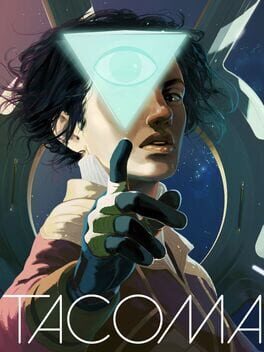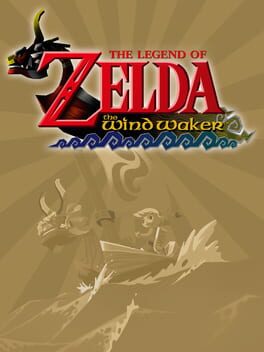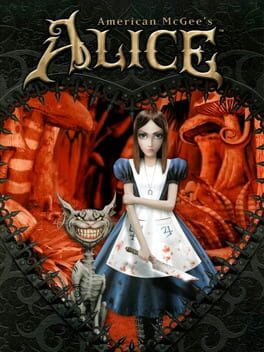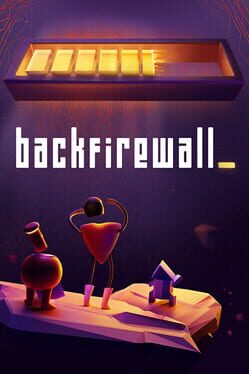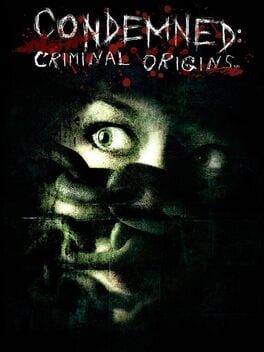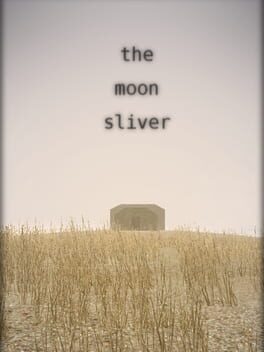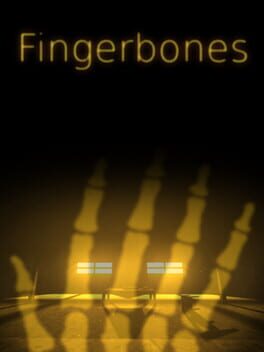2018
I see Lobotomy being mentioned and see that it's an anomaly management game, so naturally I put it on my list.
When I finally boot it up, it didn't take more than 30 mins to find issues and pet peeves. Like the subpar UI and scaling whether it's the sprites, the text or event box. Plus I'm greeted to a bland environment with doll designs that I didn't really appreciate personally. Although it's criminal how could you fumble an inspiration like the SCP foundation, I've played games with bad characters like neon white before so I didn't think of it a dealbreaker.
I play a few days and find a few questionable design decisions. You can retry workdays as much as you like but if you're soft-locked (due to agent death/gear loss etc..) you can only rollback to specific intervals every 5 or so days. What gives this feature its purpose is how grindy the experience is. Some missions require working for way longer past the daily goalpost due to progress resetting every day.
What compounds this grind even more is that specific anomalies require very specific combinations or measures to be worked on in relative safety. For example, I get an anomaly that requires itself to be off-screen to work successfully, how do they realistically expect players to shy their eyes from their newest anomaly for at-least the first few times they're worked on? How many times am I supposed to realistically retry this workday before giving up and looking up the required measure for it?
I strictly intended to not look up anything to not spoil the fun, but this was too much for my patience.
Was the management cycle even fun enough to bear with those faults? Not really. You can loosely group management into 3 phases/levels. Working is just sending agents to work on the anomalies to generate the prized power source, Countermeasures is when an anomaly escapes or an agent goes frenzy and damage control is needed, and ordeals are random events that trigger once you work on anomalies more than a set figure and is basically a base invasion that you need to fight off.
The management part is boring when things go as intended so you've got contrived perquisites and the invasions to keep you busy. Plus you can get extra screwed if you luck goes south when picking new anomalies.
So
- The cycle itself isn't that fun and revolves around a grind
- luck is a considerable factor to justify the rouge-lite elements
- Art direction is poor and in 10 hours I've heard like 4 tracks tops
-Writing fails to build intrigue and instead puts the effort on building bland uninteresting characters.
Honestly IDK who should be the audience for such a game. I don't want to say that it's made for crusty weebs who fixate on characters above all else but I'm dumbfounded to mention another type of audience. Didn't want to hold prejudice against a Korean studio but this further proves that Korea is a fake and gay country.
When I finally boot it up, it didn't take more than 30 mins to find issues and pet peeves. Like the subpar UI and scaling whether it's the sprites, the text or event box. Plus I'm greeted to a bland environment with doll designs that I didn't really appreciate personally. Although it's criminal how could you fumble an inspiration like the SCP foundation, I've played games with bad characters like neon white before so I didn't think of it a dealbreaker.
I play a few days and find a few questionable design decisions. You can retry workdays as much as you like but if you're soft-locked (due to agent death/gear loss etc..) you can only rollback to specific intervals every 5 or so days. What gives this feature its purpose is how grindy the experience is. Some missions require working for way longer past the daily goalpost due to progress resetting every day.
What compounds this grind even more is that specific anomalies require very specific combinations or measures to be worked on in relative safety. For example, I get an anomaly that requires itself to be off-screen to work successfully, how do they realistically expect players to shy their eyes from their newest anomaly for at-least the first few times they're worked on? How many times am I supposed to realistically retry this workday before giving up and looking up the required measure for it?
I strictly intended to not look up anything to not spoil the fun, but this was too much for my patience.
Was the management cycle even fun enough to bear with those faults? Not really. You can loosely group management into 3 phases/levels. Working is just sending agents to work on the anomalies to generate the prized power source, Countermeasures is when an anomaly escapes or an agent goes frenzy and damage control is needed, and ordeals are random events that trigger once you work on anomalies more than a set figure and is basically a base invasion that you need to fight off.
The management part is boring when things go as intended so you've got contrived perquisites and the invasions to keep you busy. Plus you can get extra screwed if you luck goes south when picking new anomalies.
So
- The cycle itself isn't that fun and revolves around a grind
- luck is a considerable factor to justify the rouge-lite elements
- Art direction is poor and in 10 hours I've heard like 4 tracks tops
-Writing fails to build intrigue and instead puts the effort on building bland uninteresting characters.
Honestly IDK who should be the audience for such a game. I don't want to say that it's made for crusty weebs who fixate on characters above all else but I'm dumbfounded to mention another type of audience. Didn't want to hold prejudice against a Korean studio but this further proves that Korea is a fake and gay country.
A game that warrants - and deserves - to be talked about over and over and over. It would be an overwhelming task for me or anyone to try and crystallize even a single perspective in a review. I will however try to compress and skirt over generalities.
To get it out of the way first, the music is absolutely perfect, flawless, and monumental. It elevates crucial moments, it gives a strong taste to areas and little conclusions, and even adds to other stretches. It is a landmark as far as OSTs go.
Automata's control is a bit iffy, you get used to and understand it but it doesn't leave a good first impression. Some elements may not sit will like the need to respec your chips (Upgrades) specially for the multipe runs needed. Also the grueling quest design which I am certain was designed intentionally to feel this way. The enemy level scaling can spike unusually which warrants grinding or using cheesy tactics.
This can be interpreted validly as Taro's criticism on ideas like game design, parallels to work culture etc... But personally I think it's overbearing and negatively affects the story experience, because some subplots are interesting and have great payoff. Also that I've played a good number of games with intentionally hostile design so this novelty is a bit worn off for me.
I can't even decide on a point of introduction for the plot and writing in general. It was some of the most admirable, charming, and memorable dramas I've experienced. It is convoluted when looked at vertically but individual beats can be taken singularly and they're beautiful in many ways. The machine lifeforms are extremely interesting in so many ways than I could express, they elevate or star in so many aspects. 9S is my dear boy.
To put it briefly, playing through automata is somewhat of an effort and a commitment, but like how most commitments are it is very rewarding. If you're willing to take in some jank, this is a must play.
To get it out of the way first, the music is absolutely perfect, flawless, and monumental. It elevates crucial moments, it gives a strong taste to areas and little conclusions, and even adds to other stretches. It is a landmark as far as OSTs go.
Automata's control is a bit iffy, you get used to and understand it but it doesn't leave a good first impression. Some elements may not sit will like the need to respec your chips (Upgrades) specially for the multipe runs needed. Also the grueling quest design which I am certain was designed intentionally to feel this way. The enemy level scaling can spike unusually which warrants grinding or using cheesy tactics.
This can be interpreted validly as Taro's criticism on ideas like game design, parallels to work culture etc... But personally I think it's overbearing and negatively affects the story experience, because some subplots are interesting and have great payoff. Also that I've played a good number of games with intentionally hostile design so this novelty is a bit worn off for me.
I can't even decide on a point of introduction for the plot and writing in general. It was some of the most admirable, charming, and memorable dramas I've experienced. It is convoluted when looked at vertically but individual beats can be taken singularly and they're beautiful in many ways. The machine lifeforms are extremely interesting in so many ways than I could express, they elevate or star in so many aspects. 9S is my dear boy.
To put it briefly, playing through automata is somewhat of an effort and a commitment, but like how most commitments are it is very rewarding. If you're willing to take in some jank, this is a must play.
2018
Hades felt different from what I came to expect when booting it up. The world is beautifully drawn, the story premise is cool, and the gameplay loop hold up better than expected. That explains how I've put decent time into post-endgame runs more than I honestly expected.
Being a Supergiant title, I expected good writing even if it isn't the focus. Can't say that I'm disappointed at all. Taking from Greek mythology gives them lots of ideas and inspirations, yet they made something great out of it. Each character is distinct, whether it's their writing or voice performances, can't say there's a boring person in the roster. Cohesive ludo-narrative overall even after the credits roll.
It takes its sweet time to develop, with some too long downtime but it gels well and ends on a good note.
Gameplay is quick and simple but the variety of builds and modifiers really extends the mileage of fun. I didn't care for min maxing but rarely did I feel that I end up with a bad build. It works even better on a pickup-and-play approach but that doesn't mean it doesn't stand out as a good game.
Being a Supergiant title, I expected good writing even if it isn't the focus. Can't say that I'm disappointed at all. Taking from Greek mythology gives them lots of ideas and inspirations, yet they made something great out of it. Each character is distinct, whether it's their writing or voice performances, can't say there's a boring person in the roster. Cohesive ludo-narrative overall even after the credits roll.
It takes its sweet time to develop, with some too long downtime but it gels well and ends on a good note.
Gameplay is quick and simple but the variety of builds and modifiers really extends the mileage of fun. I didn't care for min maxing but rarely did I feel that I end up with a bad build. It works even better on a pickup-and-play approach but that doesn't mean it doesn't stand out as a good game.
2013
This is my first Telltale experience so I won't be making comparisons. Taking it from the top, TWAU presents the fables world very attractively. It goes straight to business in presenting concepts and their consequences. It really makes me want to give the comics a shot.
Characters are also a good hit for the most part, they're not stereotypically based on their fairy tale story and they each have their own depth. Only one character felt cringy and over the top (BM) but thankfully she isn't very prominent in the plot.
I liked the story a lot, while it does lose some steam going through, I understand because that stellar introduction is hard to keep up with. I rarely felt frustrated that the choice didn't match my intention or that consequences felt nonsensical.
The Teltale penciled style really fits the setting, it felt like a perfect match. There were technical issues but they all were either animation or facial-expressions related. I'm not a fan of QTEs, but it wasn't specifically bad or anything.
Characters are also a good hit for the most part, they're not stereotypically based on their fairy tale story and they each have their own depth. Only one character felt cringy and over the top (BM) but thankfully she isn't very prominent in the plot.
I liked the story a lot, while it does lose some steam going through, I understand because that stellar introduction is hard to keep up with. I rarely felt frustrated that the choice didn't match my intention or that consequences felt nonsensical.
The Teltale penciled style really fits the setting, it felt like a perfect match. There were technical issues but they all were either animation or facial-expressions related. I'm not a fan of QTEs, but it wasn't specifically bad or anything.
1994
DKC is on the harder side for a retro platformer, lots of 'gotcha' moments included, which means it takes a trial and error approach unless you have abnormal reflexes, although you have a stock of lives to tip the scale.
It does have elements that's shunned contemporarily, like its water levels. Other gimmicky levels are pretty good, some cart and slippery ice stages are spikes in difficulty, but I've grown to enjoy these as well in moderation.
While some platformers leave skill moves as a player advantage, DKC expects you to get accustomed to using them regularly or else you'd be hemorrhaging lives. Losing one of your Kongs is a good buffer but for some stages you'd better be holding dearly to Diddy since he's much more useful in obstacle heavy levels. Donkey is much better for eliminating enemies but Diddy is my - and others'- favorite.
Artistically I love its style. A good variety of cool designs keeps you well entertained, even water levels aren't rough on the eyes, despite how simple they are visually. With special mention to cave levels squeezing some extra flair just when you thought you got used to them.
It does have elements that's shunned contemporarily, like its water levels. Other gimmicky levels are pretty good, some cart and slippery ice stages are spikes in difficulty, but I've grown to enjoy these as well in moderation.
While some platformers leave skill moves as a player advantage, DKC expects you to get accustomed to using them regularly or else you'd be hemorrhaging lives. Losing one of your Kongs is a good buffer but for some stages you'd better be holding dearly to Diddy since he's much more useful in obstacle heavy levels. Donkey is much better for eliminating enemies but Diddy is my - and others'- favorite.
Artistically I love its style. A good variety of cool designs keeps you well entertained, even water levels aren't rough on the eyes, despite how simple they are visually. With special mention to cave levels squeezing some extra flair just when you thought you got used to them.
Episode format is shit and needless since A. this is an RPG maker type game and B. It isn't a literary masterpiece to take up all this time or for early access players to specifically revisit.
It fun because it's stupidly endearing how serious it takes itself, that's literally it. Episode 1 had a premise that seemed under-utilized. It's concerning itself with a cultist plot beat and their pasts to the point where I heavily doubt it'll be able to handle all points with time and care.
If this meme isn't dead in like 18–20 months come back and check it out once it's actually done and finished.
It fun because it's stupidly endearing how serious it takes itself, that's literally it. Episode 1 had a premise that seemed under-utilized. It's concerning itself with a cultist plot beat and their pasts to the point where I heavily doubt it'll be able to handle all points with time and care.
If this meme isn't dead in like 18–20 months come back and check it out once it's actually done and finished.
2022
The game's two main halves are diving and managing a restaurant. The diving is based on Proc-Gen that changes everyday, you hunt fish and items for quests and running the restaurant. The restaurant is about supplying and enlarging your menu while occasionally handling special requests.
The loop fails to hide its repetitiveness except for ebbs and flows of showering you with side content and checklists then leaving you on your own for a few days.
It might be comfy for people who like occasionally picking up this type of games, but I found it too dull and honestly meaningless. I can take a dive and grab the item for the main quest and still have a lot of time left, I see the same types of fish back and forth and my kitchen is brimming with stock. Its last bastion is an index which fills up as you get new fish, but these completionist incentives don't work for me.
The art is beyond boring. This may sound like a personal ick but since this is a deep marine setting and they went for sprites that should've afforded them a better looking game. Yet it's bland, the characters, the "story", the art and the music. This isn't good at all for this type of game since you'll be staring under the sea for +20 hrs.
The loop fails to hide its repetitiveness except for ebbs and flows of showering you with side content and checklists then leaving you on your own for a few days.
It might be comfy for people who like occasionally picking up this type of games, but I found it too dull and honestly meaningless. I can take a dive and grab the item for the main quest and still have a lot of time left, I see the same types of fish back and forth and my kitchen is brimming with stock. Its last bastion is an index which fills up as you get new fish, but these completionist incentives don't work for me.
The art is beyond boring. This may sound like a personal ick but since this is a deep marine setting and they went for sprites that should've afforded them a better looking game. Yet it's bland, the characters, the "story", the art and the music. This isn't good at all for this type of game since you'll be staring under the sea for +20 hrs.
2001
2017
Well... while Tacoma lacks in some aspects, it surprisingly exceeds in others.
The setting is space-faring late 21st century, exploring an empty moon orbit station as a contractor. Main source of info is the environment and Augmented Reality recordings, most of the information is given through the AR logs while some unspoken details - although not hidden - can be found through notes and other items.
Honestly the writing isn't bad but it's not much to speak of as well, it takes a stage painting a world of post late capitalism. Currency has fallen, everyone's hurting for money, the corps are trying to screw over people and bust unions.
Nice themes, but the details aren't grounded. All our conceptions of modern geopolitics are irrelevant, not one country we know have been spared from being broken down into stupidly named unions, Confederates, etc... Those bodies are irrelevant other than character ID issuers, but it breaks the suspension of disbelief. Characters are somewhat archetypical with their lame quirks, I felt more attached and interested in the onboard AI more than any of them because ODIN - The AI - has the best writing and depth.
The soundtrack rarely shows, other than an obnoxious diegetic band one character really loves. Visuals are alright for the setting, usual sleek space design language.
Tacoma's best performance is in indirect storytelling, rummaging through the rooms and offices conveys more depth about characters and the world, both aren't that deep but the execution was nice.
It isn't a bad game or even boring if I'm being honest, but I've personally grown tired with this style of narrative and loop. For someone else, this could be a great experience, so hop on if you're still interested in trying it.
The setting is space-faring late 21st century, exploring an empty moon orbit station as a contractor. Main source of info is the environment and Augmented Reality recordings, most of the information is given through the AR logs while some unspoken details - although not hidden - can be found through notes and other items.
Honestly the writing isn't bad but it's not much to speak of as well, it takes a stage painting a world of post late capitalism. Currency has fallen, everyone's hurting for money, the corps are trying to screw over people and bust unions.
Nice themes, but the details aren't grounded. All our conceptions of modern geopolitics are irrelevant, not one country we know have been spared from being broken down into stupidly named unions, Confederates, etc... Those bodies are irrelevant other than character ID issuers, but it breaks the suspension of disbelief. Characters are somewhat archetypical with their lame quirks, I felt more attached and interested in the onboard AI more than any of them because ODIN - The AI - has the best writing and depth.
The soundtrack rarely shows, other than an obnoxious diegetic band one character really loves. Visuals are alright for the setting, usual sleek space design language.
Tacoma's best performance is in indirect storytelling, rummaging through the rooms and offices conveys more depth about characters and the world, both aren't that deep but the execution was nice.
It isn't a bad game or even boring if I'm being honest, but I've personally grown tired with this style of narrative and loop. For someone else, this could be a great experience, so hop on if you're still interested in trying it.
Seemed like another fresh experience after Majora's Mask, but it can't carry the mantle and it broke down for me.
It still carries a lot of the lackluster QoL of former games, but respectfully those games did so much to make up for it. This isn't the case here. Sailing the great sea sounded much better than it is. I thought getting the teleportation melody would solve it, but still I had to endure a lot of just stale beelining, sailing right through enemies without a second thought. I caught the habit of using the emulator's turbo and still it got painfully boring.
Combat is identical for the most part to older titles, dungeon design learned a few new tricks, but they're far and few to hold it together. Quests feel samey and less memorable than Ocarina or Majora, which are huge boots to fill but that's the toll of being a mainline Zelda game.
In a vacuum it isn't bad at all, but it's disappointing to me as a Zelda sequel.
It still carries a lot of the lackluster QoL of former games, but respectfully those games did so much to make up for it. This isn't the case here. Sailing the great sea sounded much better than it is. I thought getting the teleportation melody would solve it, but still I had to endure a lot of just stale beelining, sailing right through enemies without a second thought. I caught the habit of using the emulator's turbo and still it got painfully boring.
Combat is identical for the most part to older titles, dungeon design learned a few new tricks, but they're far and few to hold it together. Quests feel samey and less memorable than Ocarina or Majora, which are huge boots to fill but that's the toll of being a mainline Zelda game.
In a vacuum it isn't bad at all, but it's disappointing to me as a Zelda sequel.
Between its reputation and its premise, McGee's Alice popped on my radar. Did it deserve to be gassed up that much? I'd say almost but not quite so.
Between platforming/exploration or combat, Alice leans into the latter with about 9 or so weapons, otherwise you can simply move, jump, or swim. So it's misleading to dub it a platformer as much as a puzzler.
Combat itself is iffy, I played on hard and I could notice a trend of it being easier as I progress. There are a lot of weapons and they're not created equal, some completely overwrite others in efficacy, some stay handy till the end. Such variety allows for variable combat approaches even when some are superior to others.
The setting itself is the important bit here. A deranged juxtaposition when looking at the wonderland we know. It is twisted and spat out and Alice doesn't shy from giving an unseen attitude towards these changes. This Alice doesn't take shit from anyone.
The VA of her and other characters were very competent, to the point that it feels like they're not doing their best, yet I've heard some memorable lines.
The design of this twisted wonderland varies but compared to what I commonly know about wonderland, I can say that I really liked this rendition. Some iconic sceneries and some new and novel levels. It gets stale around the middle but pushes back to end on somewhat of a good note.
I can't recommend Alice unless you're interested in seeing this world, but as a game overall I can't say that it's worth the hassle.
Between platforming/exploration or combat, Alice leans into the latter with about 9 or so weapons, otherwise you can simply move, jump, or swim. So it's misleading to dub it a platformer as much as a puzzler.
Combat itself is iffy, I played on hard and I could notice a trend of it being easier as I progress. There are a lot of weapons and they're not created equal, some completely overwrite others in efficacy, some stay handy till the end. Such variety allows for variable combat approaches even when some are superior to others.
The setting itself is the important bit here. A deranged juxtaposition when looking at the wonderland we know. It is twisted and spat out and Alice doesn't shy from giving an unseen attitude towards these changes. This Alice doesn't take shit from anyone.
The VA of her and other characters were very competent, to the point that it feels like they're not doing their best, yet I've heard some memorable lines.
The design of this twisted wonderland varies but compared to what I commonly know about wonderland, I can say that I really liked this rendition. Some iconic sceneries and some new and novel levels. It gets stale around the middle but pushes back to end on somewhat of a good note.
I can't recommend Alice unless you're interested in seeing this world, but as a game overall I can't say that it's worth the hassle.
2022
The humor is inconsistent, the narrative is very loose and honestly drops many opportunities to elevate its emotional attachment. I can say that only 1 plot point really got to me, and it built momentum for absolutely no payoff. The twist carried frustration for being too late and lackluster. You walk and talk and occasionally solve easy puzzles.
For a unity game this game had performance hiccups despite very basic lighting and a lot of surfaces having textureless colors. I'm not gonna put down indie devs or act as if developing even for unity is easy, but as a user I can say that the technical issues were genuinely affecting my experience.
TBH this feels like a Pixar-ish world with the humor of a Warner Bros production. Cool concept but gives the vibes of - God forgive this sinful souls for uttering such words - a Reddit tier game.
This has been my 404th game logged so it's a nice coincidence.
For a unity game this game had performance hiccups despite very basic lighting and a lot of surfaces having textureless colors. I'm not gonna put down indie devs or act as if developing even for unity is easy, but as a user I can say that the technical issues were genuinely affecting my experience.
TBH this feels like a Pixar-ish world with the humor of a Warner Bros production. Cool concept but gives the vibes of - God forgive this sinful souls for uttering such words - a Reddit tier game.
This has been my 404th game logged so it's a nice coincidence.
Even with all the jank of getting it to boot and how stiff it moves, condemned starts off on a strong foot.... then fumbles it all away.
It plays the same during its whole tenure you wield one weapon, either a gun or whatever sharp or blunt object you can get your grubby hands on. You swing your makeshift weapon or block, guns can't be reloaded even with similar guns which is stupid considering Ethan is an FBI agent, it doesn't even gel well mechanically since you'll be leaving behind a weapon of choice for a sluggish weapon since you need specific hammers or axes to proceed.
The combat loop doesn't change at all, enemies slightly change but not nearly enough to carry the combat. Plus the investigation aspect is a mindless point and click.
The reason I decided on it is because of its well regarded atmosphere, which it IS there but the devs apparently didn't recognize it as a strong suit to utilize it further. I've had moments of tension where the room layout, lighting, and music were on point only to pay it off with a crackhead or two running at me. It was a big sore fault not to lean into its unnerving atmosphere. I wished so hard for at least one level to be horror oriented, and some were so close to that but I am disappointed.
The story is a piece of shit except for a few good beats. Weaponized crackheads make up most of the goons you'll be fighting, who get ramped up in their depravity as the plot progresses. The general synopsis is you've been framed for killing 2 cops by an anonymous fugitive and have to conduct rouge investigations to clear your name, anything after that was unceremoniously horrible. Almost a half or more of plot points don't get solved or even recognized later in the game. You've got mass bird deaths, rampant crime and a lot of dehumanized drug fiends, like really a lot... A LOT. It doesn't explain what's happening to the birds or the addicts, or what's happening to your MC, both physical and supernatural elements are at play and the game ends with one of the blandest anticlimactic and confusing wrap ups I've ever played. The story is nonsensical without the sequel's knowledge, and even after skimming through its plot it's embarrassingly disappointing.
It plays the same during its whole tenure you wield one weapon, either a gun or whatever sharp or blunt object you can get your grubby hands on. You swing your makeshift weapon or block, guns can't be reloaded even with similar guns which is stupid considering Ethan is an FBI agent, it doesn't even gel well mechanically since you'll be leaving behind a weapon of choice for a sluggish weapon since you need specific hammers or axes to proceed.
The combat loop doesn't change at all, enemies slightly change but not nearly enough to carry the combat. Plus the investigation aspect is a mindless point and click.
The reason I decided on it is because of its well regarded atmosphere, which it IS there but the devs apparently didn't recognize it as a strong suit to utilize it further. I've had moments of tension where the room layout, lighting, and music were on point only to pay it off with a crackhead or two running at me. It was a big sore fault not to lean into its unnerving atmosphere. I wished so hard for at least one level to be horror oriented, and some were so close to that but I am disappointed.
The story is a piece of shit except for a few good beats. Weaponized crackheads make up most of the goons you'll be fighting, who get ramped up in their depravity as the plot progresses. The general synopsis is you've been framed for killing 2 cops by an anonymous fugitive and have to conduct rouge investigations to clear your name, anything after that was unceremoniously horrible. Almost a half or more of plot points don't get solved or even recognized later in the game. You've got mass bird deaths, rampant crime and a lot of dehumanized drug fiends, like really a lot... A LOT. It doesn't explain what's happening to the birds or the addicts, or what's happening to your MC, both physical and supernatural elements are at play and the game ends with one of the blandest anticlimactic and confusing wrap ups I've ever played. The story is nonsensical without the sequel's knowledge, and even after skimming through its plot it's embarrassingly disappointing.
2014
While it undertakes and achieves what it was scaled for, it doesn't come without faults as well.
The gameplay consists of walking and interacting, the cool gimmick here is that standing in specific locations or near specific objects triggers written memories on screen. It was interesting to trace the conversations or happenings in rooms or houses. Sometimes the proximity clutters the screen which is a polish issue but not game-breaking or even that significant.
Visuals are humble, consisting of free assets and art contributions, sound is also simple but used effectively if not expertly.
I can't speak much of a single hour playtime game without spoiling, so I'll just say it's a resident of a lone islet tracing their memories. It takes some from Szymanski's previous project and works it again in a somewhat different light.
The gameplay consists of walking and interacting, the cool gimmick here is that standing in specific locations or near specific objects triggers written memories on screen. It was interesting to trace the conversations or happenings in rooms or houses. Sometimes the proximity clutters the screen which is a polish issue but not game-breaking or even that significant.
Visuals are humble, consisting of free assets and art contributions, sound is also simple but used effectively if not expertly.
I can't speak much of a single hour playtime game without spoiling, so I'll just say it's a resident of a lone islet tracing their memories. It takes some from Szymanski's previous project and works it again in a somewhat different light.
2014
Considering it's his first finished project, Fingerbones was a cleverly thought game. The game has the polish of a game jam project which isn't much to sing about but it does what it wanted to do without issues mostly.
Your exposition is given through scattered pages which isn't very environmental in storytelling but other than that it plays upon it well. Password recognition is the puzzle here but it's not so difficult as to interrupt your game. The conclusion of the game is a bit of a curveball but it is well presented for the most part.
And it's a free sub 30 min experience! I'd say go for it.
Your exposition is given through scattered pages which isn't very environmental in storytelling but other than that it plays upon it well. Password recognition is the puzzle here but it's not so difficult as to interrupt your game. The conclusion of the game is a bit of a curveball but it is well presented for the most part.
And it's a free sub 30 min experience! I'd say go for it.
